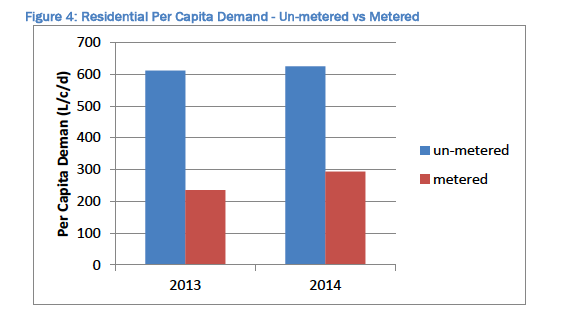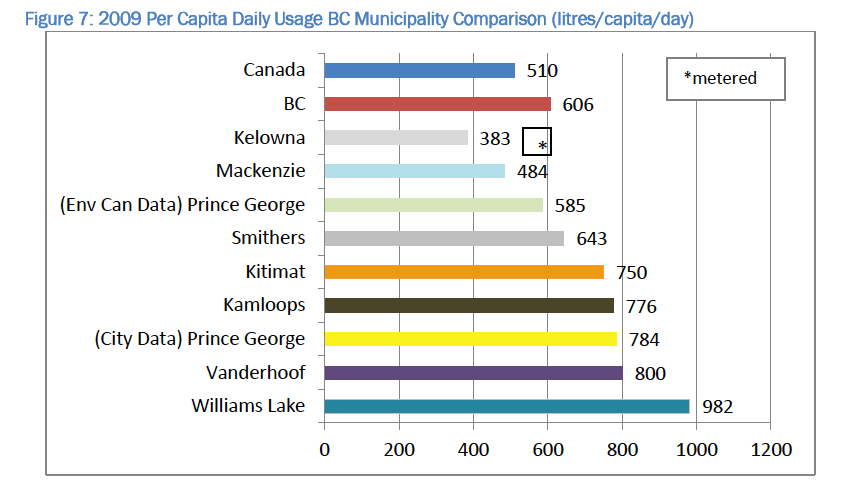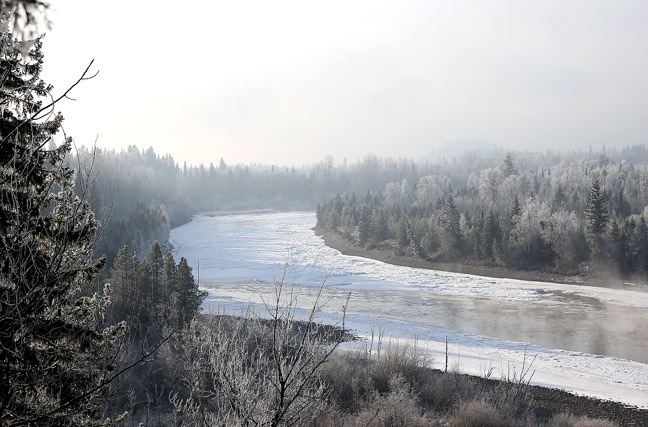The city is embarking on a new 10-year water conservation plan after its previous plan failed to come close to targets and instead of saving money, increased costs by 25 per cent.
In 2015 Prince George fell short of its decade-long plan, reducing water consumption by only five per cent, three times less than the 15 per cent goal. It also said it would decrease residential usage by 20 per cent, but reduced it by four per cent.
If the 2005 plan had been followed, it projected $139,209 in savings for water and wastewater operating expenses each year. Instead a report before city council said those expenses increased from 2004 levels by 25 per cent.
Wastewater operations spiked by 31 per cent - comparing 2014 numbers to 2004 before the plan was implemented - and water operations bumped by 22 per cent. In both cases, electricity accounted for most of the rise in costs.

Nevertheless the city is increasing its commitment with a goal of 20 per cent water reduction by 2025. The 2016 Water Conservation Implementation Plan, to be presented to council on Monday, asserts with "focused attention to the strategies" it can achieve that goal.
The new approach, authored by Opus DaytonKnight Consultants Ltd. and the city's engineering services, calls it a more attainable target than the province's recommended target of 33 per cent drop by 2020 for its Living Water Smart Campaign.
In the short term Prince George's 2005 water plan - a first for the city - saw some success, with a 10 per cent decrease in water consumption from 2006 to 2011. But over the next four years consumption jumped by 15 per cent. Some of that change might be because the city reduced the efforts of its public education program in 2012, the report said.
The authors say a better educated population is important to shift local perspectives away from a belief that a stable water supply is guaranteed.
"By persistently and effectively reaching out to the public, the myth of limitless abundance of clean, fresh water can be dispelled," the plan said.
"By educating the public on this matter, a conservation ethic can be instilled that will ensure that water availability and quality issues do not limit future social and economic gains."
The new plan lays out five strategies to achieve its goal, including water-use restrictions, encouraging more signees to the water metering system, a leak detection program, more education, and "city leadership" to advance water-use efficiency.
Violating sprinkler restrictions come with a $50 fine and yet no tickets have been handed out "to date" the report says.
Water restrictions are only effective if the community follows them, the plan cautions.
"This requires community support and strict enforcement," it said before suggesting mandatory water restrictions and a significant fine increase: $100 per day for the first offence, then $250 and $500 for subsequent violations.
Water metering is "one of the most effective tools for increasing awareness."

The city now requires all new single and multi-family homes to instal water metres. In 2014, there were 691 metres, 75 of which were from voluntary sign-ups. Those without metres double the average daily demand for water compared to metered residents.
Unlike the old plan, the 2016 plan doesn't recommend universal water metering because of high costs of installation.
The plan called the city's drinking water "crucial to the health and growth" of the community, but said it will take vigilance from leaders to achieve the new targets.
"Only through a continuous focus on education and awareness of water conservation, can the program be successful."




